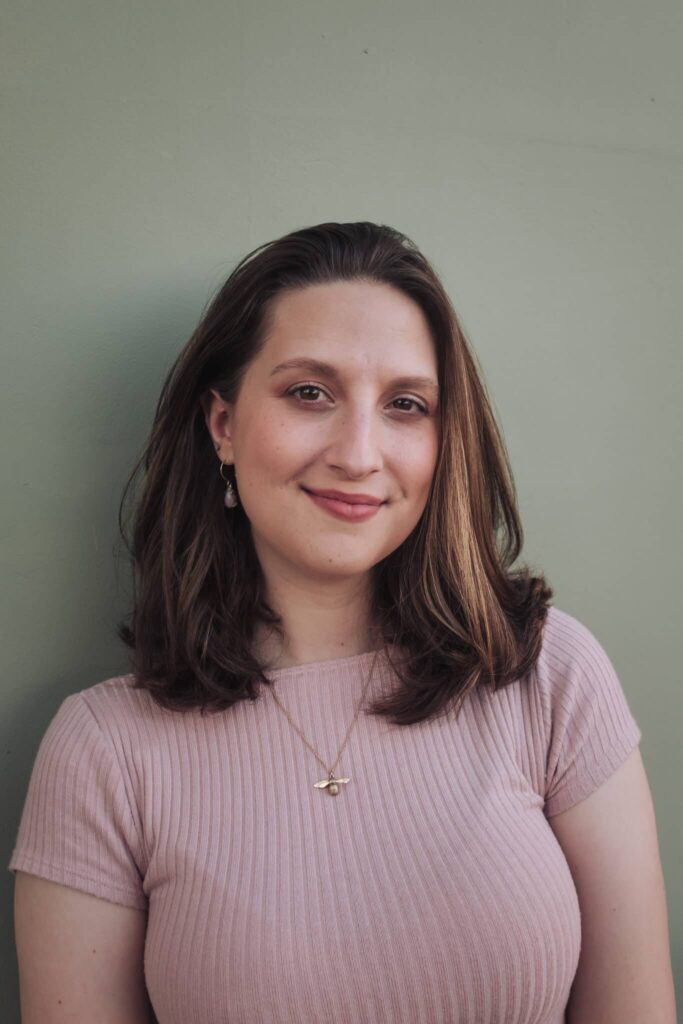In December 2018, I decided to do a self breast exam while sitting in the bath. I hadn’t looked into how to do one properly, but I figured if I used some shower gel and just went to town it’d be better than nothing. To my surprise, I found what felt like a penny sized lump in my right breast and sought out my husband’s opinion. There was maybe something there, we agreed, but surely I couldn’t have breast cancer in my twenties?
After getting out the bath, I did what any rational twenty-nine year old would do—jump straight onto Google. Reassuringly, Google suggested that my age and limited family history of breast cancer meant it was probably nothing serious. Google also suggested that many menstruating people will experience lumps in their breasts at certain times during their cycle, so I decided to wait a month to see what happened.
Well, a month passed and—to my horror—the lump doubled in size. I was terrified and unsure what to do, having practically zero experience with American healthcare and health insurance. Unable to stand waiting for an appointment somewhere, I decided to go to an urgent care after work. I figured they’d give the lump a quick poke, say it was a cyst, and then send me home. Instead, the doctor spent a few methodical minutes feeling me up and informed me that the lump needed further investigation. One ultrasound, a biopsy, a mammogram and a whole month later I found out that, in fact, I did have breast cancer. Stage one, grade three, highly aggressive, triple positive breast cancer, to be precise.
As my husband and I sat in another exam room, at another hospital, a team of doctors laid out the plan. Fertility preservation and IVF, six rounds of chemotherapy, fourteen rounds of immunotherapy, bilateral mastectomy, breast reconstruction, hormone suppression and targeted therapies were described to us. My treatment plan was to span at least five—possibly ten—years. Sitting in that exam room, I knew my life as I knew it was over. So began my new life of waiting rooms, MRI machines, blood draws and IV lines.
Why, you may wonder, had I decided to perform a self breast exam at the age of twenty-nine in the first place? It wasn’t just because of my moderate to severe hypochondria, but because almost a year earlier, my childhood best friend Emily had been diagnosed with breast cancer, whilst pregnant with her second child. Emily carried the BRCA gene, but even for someone with a known genetic predisposition, for her to be diagnosed at the age of twenty-eight was a huge shock. She’d caught her cancer early, tolerated her treatments well, and even managed to give birth to her beautiful and healthy baby boy midway through rounds of chemo.
By the time I was diagnosed, Emily was in remission and she supported me as best she could via messages sent from across the pond. She talked me through chemo and surgery and the different reconstruction options. She understood my anger and sense of isolation. She echoed my frustrations at being an outlier, at always being the youngest person in the waiting room. She also, helpfully enough, was a pharmacist, and able to give me advice about all the new medications my body was being bombarded with.
Six months after my diagnosis, and a few weeks after my bilateral mastectomy, I received a message that gutted me. Emily’s cancer had recurred, metastasizing to her brain. This time, I didn’t need to go on Google to know it was bad. I’d researched the survival rates of metastatic breast cancer months before, when I was trying to come to terms with my own risk of recurrence. Emily’s disease progressed quickly, and when she died in hospice care, I was unable to make it back in time to say goodbye to her.
I was completely consumed by my grief. And not just grief, but the most insistent, gut wrenching guilt. How could I go on? What right did I have to live? Why was I still here, when she was not? And then below all this grief and guilt and shame, there was pure fear. Fear at succumbing to the same fate, and also fear at never living up to the pressure I felt for being ‘the one who got to survive.’
I was able to fly home to England, the same day as a round of chemo, to attend Emily’s funeral. I stood amongst the other mourners, my clothes too tight from extra steroid weight, my spiky hair regrowth smoothed down with a headband, and all I was able to think about was the unfairness of it all. Of course, the truth is, cancer is never fair. Cancer doesn’t care about your age, your diet, your health, your job, your family, your charitable work, or your plans for the future. I mean… cancer is just our own cells that got confused and started growing too fast, right?
After Emily died, my already very bad anxiety got much worse. I struggled to sleep through the night, waking constantly from panic attacks. I knew I was suffering from severe depression, and yet I didn’t want to take the medications my doctors suggested, because a part of me felt as if I was supposed to suffer. I thought if I felt anything less than intense grief and misery, it would somehow be a disservice to my friend.
I tried to focus on getting through the fourteen rounds of my new chemo, on starting hormone suppression, and on scheduling my reconstruction surgeries. But, at each stage of my treatment plan, it was impossible not to compare myself with Emily. Why was Emily not getting to have her reconstruction surgeries? Why did my triple positive breast cancer have all these extra treatment options, when her triple negative breast cancer did not? I felt like I had no right to feel sad about my own cancer, or complain about new side effects, because all my suffering was intangible proof I was still alive when she wasn’t.
Right from the beginning of our diagnoses, both Emily and I had started online blogs to keep family and friends updated on our treatments. More and more, I was finding writing to be a source of catharsis. I found myself sitting down to write when I was angry or sad or grateful, and I felt a sense of relief in turning all my murky feelings into black and white words on the computer screen.
I began writing about my diagnosis and treatment as if it were a story. And then, after Emily was no longer alive, I began writing about her, too. It wasn’t just the sad things I was writing about, it was all the beautiful moments, too. The memories of us as girls, playing in the woods behind our houses. Memories of us as teenagers, cutting school. Memories of us in clubs having way too much to drink. And slowly—very slowly—I began to reconnect my thoughts of Emily with the memory of who she WAS, and not just with the pain at having lost her.
I’ve often been told that everything happens for a reason, but I don’t believe that. I believe we all get dealt a hand in life, and even if our hand is terrible, the only thing we can do is play it. Maybe Emily’s hand was one of the worst you can be dealt, and yet, I can’t help but feel she played it remarkably. She touched so many people’s lives in her thirty years on this Earth. She found a man she loved, she had two beautiful children, one of whom she took to healthy full term during cancer treatment. She supported me through cancer during a time when she was recovering from her own treatment, and later, her metastasis. Even now she’s gone, her legacy lives on through the many people who love and remember her.
And then there’s the hand I was dealt: cancer at twenty-nine and the loss of my best friend to the same cruel disease. On paper, it looks like an awful hand. And who knows, maybe it is? Except the longer I play my hand, the more I’m convinced of my luck. My luck in finding my cancer early, my luck in having access to excellent medical care, my luck in knowing and loving Emily, and perhaps most of all, my luck in still being here to write about it all.
With time, I’ve found myself yearning for more connection with other AYAs. I joined UCLA Hospital’s AYA support group, and then became co-chair of our AYA Advisory Board. Now I provide peer support through UCLA and Young Survival Coalition, too. I’m making my own meaning by trying to be to other AYAs the person Emily was for me. A person who would listen without judgement. A person who understands the loneliness. A person who can say, “I understand. I’ve been there, too.”
By: Emma Vivian

